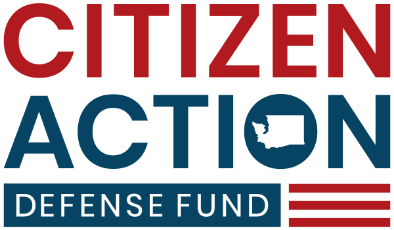Earlier this week, I wrote about Seattle and other Washington jurisdictions’ haphazard zero bail policies, whereunder even the most dangerous offenders are released without bail, on the mere promise to appear at their next scheduled hearing. Unsurprisingly, many do not show up. This week I write about another troubling practice that has a direct impact on the safety and security of Seattle and its environs.
In a recent interview with KOMO TV, Jimmy Hung, Chief of the King County Prosecuting Attorney’s Juvenile Division, applauded his office’s abysmal charging rate for sexual assault—by our count a mere 17% of the 236 felony referrals for that crime in 2022. In addition, for a host of other felonies, offenders are steered to a diversionary program with less-than-stellar results—which included losing track of nearly $28 million earmarked for the process. Less than half of those diverted even show up for the program, let alone finish it. These and other poor showings earlier this year prompted the King County Council to demand greater oversight, including a better accounting of Division statistics. To say data is lacking is putting it mildly. As Washington State Auditor Pat McCarthy put it, “[t]he program appears to have been designed to collect only limited and general information about the youth that participate.” She continued, “[w]ithout more robust and detailed program data, assessing the program’s effectiveness would be quite challenging.”
In his interview, Hung nonetheless applauded the Division’s charging policies, calling his office’s charge rate “encouraging,” claiming that it must mean more people are coming forward with their allegations. But this simply isn’t true. Data allies of ours have collected indicates that in 2019, 253 sexual-assault referrals were made to Hung’s office, of which 28% were charged. Still low, but far better than the latest rate of 17%. In a nutshell, there is much amiss at the King County Prosecuting Attorney’s Office, and not just inside its Juvenile Division. In fact, the Office’s charging rate for all crimes has fallen precipitously in recent years, despite the highest felony referral rate in years in 2022. And the Seattle Metro is worse for it, with crime rates at record highs—despite (or more likely in part because of) the Juvenile Division’s separate diversion program.
The shocking revelations from Hung’s television interview, and his cavalier attitude to victims’ rights, is alarming to say the least. In 2014, the Department of Justice reprimanded prosecutors in Missoula, Montana for a nearly identical charging rate, which Justice blamed on poor training, lax supervision, and a trove of professional mismanagement. To top it off, Justice noted the Missoula prosecutors displayed “indifference or disrespect” to victims, “diminishing the seriousness of sexual violence and minimizing the culpability of those who commit it.” While members of King County’s Juvenile Division have displayed at least perfunctory sympathy for victims, the proof, as the saying goes, is in the pudding. By diverting or declining to charge the vast majority of juvenile offenders, including some of those accused of sexual assault, Hung’s office is plainly “minimizing the culpability of those who commit” sexual and other crimes. And all this for the sake of an ostensibly community-minded, takes-a-village approach to law enforcement that ends up endangering the public far more than it protects us.
Hung stated in his television interview that he welcomed external reviews of the Juvenile Division’s actions—or rather inactions. This should happen immediately, before more victims are denied the semblance of redemption that justice can deliver. Since our local prosecutors, cannot seem get the job done themselves, it is time for federal authorities to intervene—as they had in Missoula.
King County deserves better. For the sake of our children and the safety of our neighbors and neighborhoods, we call on the Department of Justice to do what it did for Missoula and investigate King County’s Juvenile Division’s abysmal charging rates, to determine whether these somehow (unlikely) reflect worthwhile law-enforcement and rehabilitation efforts, or are—as so many of us fear—the result of the same misguided approaches responsible for the crisis that befell Western Montana. One that prompted famed investigative reporter Jon Krakauer to pen Missoula: Rape and the Justice System in a College Town (2015), a scathing expose of that county’s severely subpar treatment of sexual assault allegations.
Elsewhere, in Los Angeles, New York, and Philadelphia, overall charge or indictment rates (sometimes colorfully termed “de-prosecution”) hover around the low double digits. Alongside misguided bail reforms, these practices have provoked outrage and demands for investigation of these and other obvious flags of misconduct. Thus while King County is not alone in this challenge, it is where many of our readers call home and for many Washingtonians is the primary economic and cultural gateway to the rest of the world. It deserves to be safe, and restoring public trust in King County’s prosecutors demands federal review of what are at best clumsy—and at worst negligent—patterns of practice.
Alki,
Sam Spiegelman

